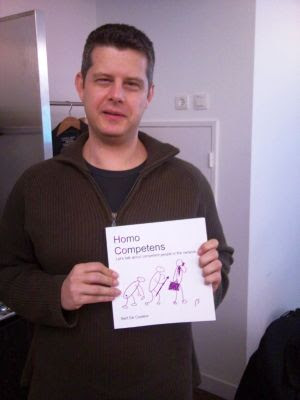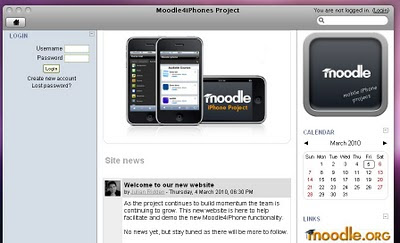
While my focus was on the learning system of Moodle the last couple of days, there are also free and open source projects for other CMS's (Content Management System). Like the Osmobi initiative developed by Siruna (University of Ghent, Belgium spin-off).
Now let's say you are a learning manager in your organization or institute, and you have a Joomla and Drupal CMS. Your learners/students ask you (after buying an amazing array of different mobile devices) if they can access the learning content through their mobile phones (yes, that is how these things happen, we all know it - that is how it happened in my institute as well).
Than what do you do? Do you say 'no, to difficult', or do you take a chance with some easy to adapt (only tech stuff is choosing 'themes' and some minimal settings), fully ready package that enables access for a mind-blowing set of mobile devices? Well, of course you go for the second option!
If you are using a CMS or LMS for your educational organization or your company, it will definitely save you time and money to incorporate the Osmobi into your system and try it out. The developers have included a step-by-step tutorial, that makes it really simple to alter the application for your own needs.
Today I got a message from Frank Gielen, he is the CEO of Siruna (which developed Osmobi) a mobile application that turns your Drupal or Joomla CMS into a mobile platform. And it is for free! (thanks to the Belgian Government and some commercial partners).
The added advantage of this mobile application, is that it incorporates an intelligent layer that recognizes your mobile device and as such redesigns the layout to fit its mobile needs (size of screen, operating system...). So ANY mobile will be recognized! AND what is even more wonderful: in case your mobile device is recognized, but not yet supported by the system, the system itself will go and look for the necessary data on the web to enable optimized access for that mobile device. Afterward this new information is added to the central information of the application.
Here is the link to the tutorial, and for those who want to see an overview of the application, look below.





